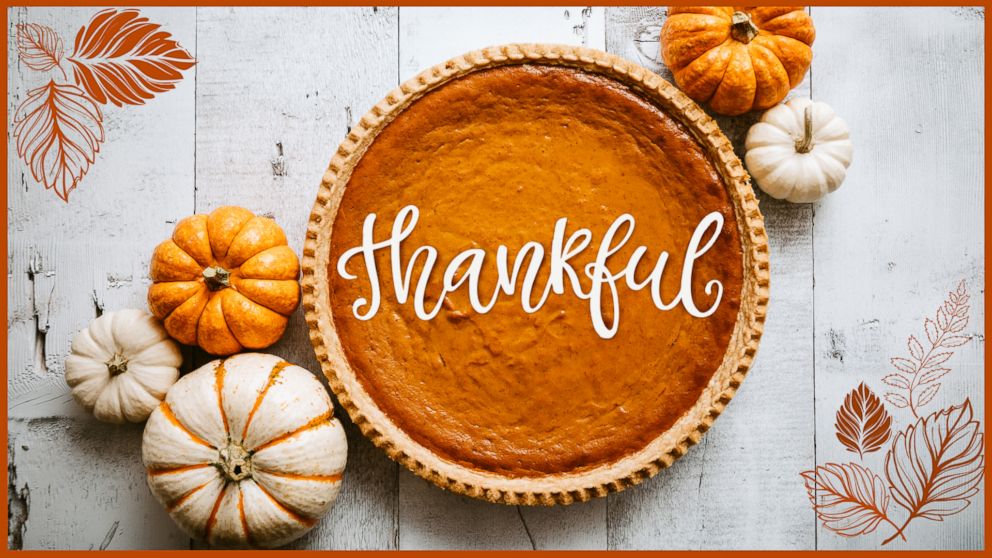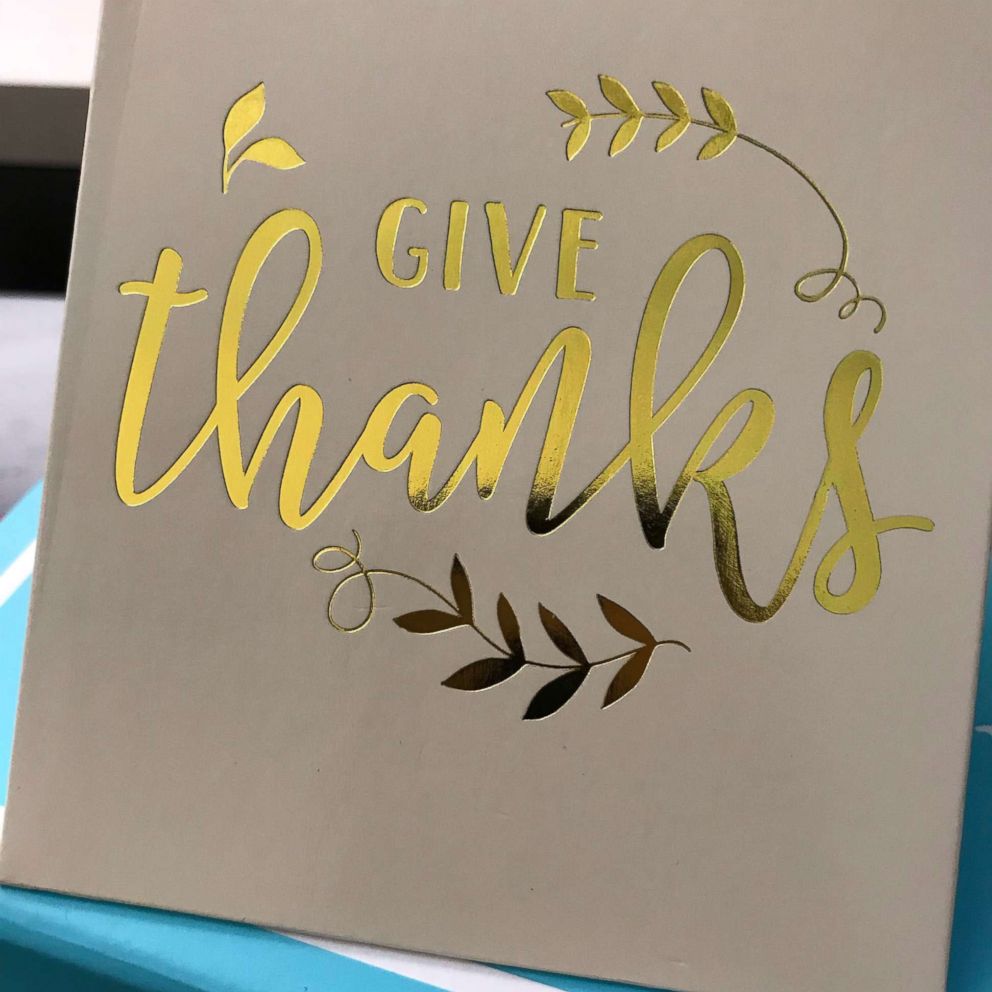How to hack your gratitude this Thanksgiving
Shawn Achor, Rachel Hollis and Gabrielle Bernstein share their tips.
This year, amid the coronavirus pandemic, finding gratitude may seem difficult, but it is more important than ever, experts say.
Research shows gratitude makes us happier and healthier people.
Thanksgiving is a great time to kick off a season of gratitude in which you identify the things that bring you joy and and the people and things for which you are grateful.
Here are the why's and how's of practicing gratitude, just in time for the holiday season.

How can gratitude help me?
Gratitude is the brain’s ability to find meaning in whatever environment you find yourself, according to Shawn Achor, author of "The Happiness Advantage" and a positive psychology expert.
To make gratitude a habit, it helps to understand what a positive impact it can have on your well-being.
"Your life is what you focus on, so focusing on gratitude means living with a grateful heart," said Rachel Hollis, bestselling author of books including "Didn't See that Coming" and "Girl, Wash Your Face." "It's about being intentional with your time and your thoughts so you can focus in on the blessings in your life."
Practicing gratitude can reduce stress, reduce depression, reduce symptoms of physical illness and just make you an all-around happier person, research shows.
"Gratitude deepens your connection to others and strengthens your relationships," said Gabrielle Bernstein, bestselling author of "The Universe Has Your Back." "When you embrace an energy of gratitude, people will want to spend more time with you and support you."
Does it matter what I'm grateful for?
The short answer, according to experts, is yes.
"Most people believe that they are very grateful, but then can only think of the obvious things, like, 'I’m grateful for this family member or my job,'" Achor said. "But what really makes someone grateful, in my research, is the ability to scan for multiple, varied and non-obvious things, even in the midst of stress or change."
(MORE: With politics and a pandemic keeping families apart, here's how to keep peace at Thanksgiving)
In other words, practicing real gratitude takes digging a bit below the surface.
Instead of saying you are grateful for your job or your son, think of why you are grateful for your job and why you are grateful for your son.
"It's not what you're grateful for that matters, it's why," Achor said.
So how do I practice gratitude?
Be intentional about noticing what you are grateful for all around you as you move through the day, experts say.
To make it even more powerful, take time each day to write down the things for which you are grateful.
Write your list in the morning or the evening, or both. Both have benefits, according to experts, but the more important thing is that you write it.
If you struggle to find what you're grateful for, try these tips:
Focus on little moments: "I tell people to look for little moments: a great cup of coffee, your 5-year-old telling you a joke, someone letting you into rush hour traffic on the freeway," said Hollis. "It helps you to appreciate today."
Think of gratitude like you think of a noun: "Focus on a person you’re really appreciative of today, like your partner or your parent," recommends Hollis. "Then focus on a place -- your favorite chair or your cozy bed. Imagine yourself there. See it in detail. Lastly, focus on a thing, like your favorite sweater."
Send a note to a family member, friend or colleague: Bernstein recommends using the Thanksgiving season to write a letter to a family member or a friend to let them know why you're grateful for them. On a daily basis, sending just a quick email of thanks and appreciation each day to someone will have a positive impact on you, not to mention the recipient.
Create a gratitude jar so you can write down things you're grateful for throughout the year and add them to the jar. At the end of the year, or whenever you need a pick-me-up, look through the jar to see what you've been grateful for at different points in the year.
Editor's note: This story was originally published on Nov. 22, 2018.







